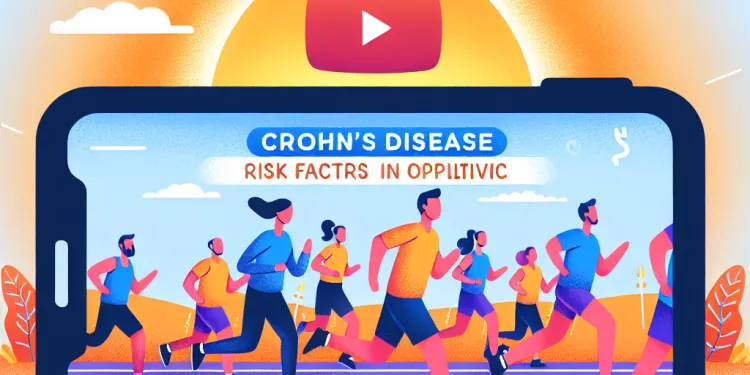
Find Help
More Items From Ergsy search
-

Who is at risk of developing eczema?
Relevance: 100%
-

Is eczema contagious?
Relevance: 61%
-

Is there a cure for eczema?
Relevance: 57%
-

What is eczema? General Information
Relevance: 57%
-

What causes eczema?
Relevance: 55%
-

Can eczema improve with age?
Relevance: 53%
-

What are the main types of eczema?
Relevance: 52%
-

How can eczema be diagnosed?
Relevance: 52%
-

What treatments are available for eczema?
Relevance: 51%
-

Factors that trigger eczema in your child
Relevance: 50%
-

Can diet affect eczema?
Relevance: 50%
-

Managing and treating your child's eczema
Relevance: 50%
-

Are there any home remedies for eczema?
Relevance: 50%
-

Who is at risk of developing shingles?
Relevance: 50%
-

Who is at risk for developing BPH?
Relevance: 49%
-

Who is at risk of developing SAD?
Relevance: 49%
-

How can I prevent eczema flare-ups?
Relevance: 49%
-

Eczema - Your child's appointment | Dermatology | Paediatrics
Relevance: 48%
-
Who is at risk for developing an eating disorder?
Relevance: 47%
-

Can dust mites cause asthma and eczema?
Relevance: 46%
-

Who is at risk of developing Crohn's disease?
Relevance: 45%
-

Who is at risk of developing Alzheimer's disease?
Relevance: 45%
-

Who is at risk of developing chronic fatigue syndrome?
Relevance: 44%
-

Are there any risk factors for developing hypotony?
Relevance: 44%
-

What are risk factors for developing sleep apnea?
Relevance: 43%
-

Who is at risk of developing shingles?
Relevance: 42%
-

What are common symptoms of eczema?
Relevance: 38%
-

What role does diet play in the risk of developing bowel cancer?
Relevance: 35%
-

How does weather affect eczema?
Relevance: 35%
-

Does drinking coffee every morning increase the risk of developing high blood pressure?
Relevance: 32%
-

Can children develop hay fever?
Relevance: 29%
-

Can nut allergies develop later in life?
Relevance: 29%
-

Who is at risk for flesh-eating disease?
Relevance: 28%
-

How common is it for women to develop dementia after menopause?
Relevance: 28%
-

Who developed the Paillon treatment?
Relevance: 28%
-

Who is at risk for testicular cancer?
Relevance: 27%
-

Has a vaccine been developed against Nipah Virus?
Relevance: 27%
-

Can children develop Crohn's disease?
Relevance: 27%
-

Can children develop chronic fatigue syndrome?
Relevance: 26%
-

What are the risk factors for bowel cancer?
Relevance: 25%
Who is at Risk of Developing Eczema?
Eczema, also known as atopic dermatitis, is a common skin condition that affects people of all ages. However, certain individuals are more at risk of developing eczema than others due to a variety of factors, including genetic, environmental, and lifestyle influences.
Genetic Factors
Genetics play a significant role in the likelihood of developing eczema. Individuals with a family history of eczema, asthma, or hay fever are more likely to develop the condition. This genetic predisposition suggests that eczema often runs in families, and having parents or siblings with eczema can increase one's risk. Research indicates that mutations in the filaggrin gene, which is essential for maintaining the skin barrier, are common in people with eczema. These genetic mutations can lead to over-reactive immune responses and skin that is more susceptible to irritation and moisture loss.
Environmental Influences
Environmental factors also contribute to the risk of developing eczema. Living in urban areas with high levels of pollution may increase the likelihood of experiencing eczema symptoms. Additionally, exposure to specific allergens and irritants, such as dust mites, pet dander, pollen, and certain foods, can trigger or worsen eczema in susceptible individuals. Climate plays a role as well; cold, dry conditions can exacerbate symptoms, while some people might find their eczema worsens in hot, humid environments.
Age and Eczema
Eczema often presents in early childhood, with many cases appearing before the age of five. Infants and young children are particularly susceptible, with symptoms frequently beginning as early as three months of age. While many children may outgrow the condition, others continue to experience eczema into adulthood. Adults who did not have eczema as children can also develop the condition, particularly after exposure to environmental triggers or stress.
Immune System and Health Conditions
Individuals with weakened immune systems or those suffering from other health conditions can face a higher risk of developing eczema. Conditions that alter immune function, such as HIV/AIDS or receiving chemotherapy, can increase the risk. Additionally, those with autoimmune disorders may also be more susceptible due to potential immune system dysregulation.
Occupational Risks
Certain occupations can lead to a higher incidence of eczema due to frequent exposure to irritants and allergens. Occupations in healthcare, cleaning, hairdressing, and food handling are examples where individuals are regularly in contact with substances that may trigger eczema, such as detergents, disinfectants, and latex.
Lifestyle and Stress
Finally, lifestyle factors, such as high-stress levels, may contribute to the onset or exacerbation of eczema. Stress can worsen symptoms and trigger flare-ups in individuals already living with the condition. Therefore, managing stress through relaxation techniques, exercise, and adequate sleep is crucial for those at risk of or currently managing eczema.
Who Can Get Eczema?
Eczema is a skin problem. Anyone can get it. Eczema makes skin itchy and red. Some people are more likely to get eczema because of different reasons.
Family History
If other people in your family have eczema, asthma, or hay fever, you might get eczema too. This is because of your genes. There is a gene called filaggrin that helps keep skin healthy. If there is a change in this gene, your skin might not work well and can be easily irritated.
Where You Live
Where you live can affect your skin. Places with lots of dirty air can make eczema worse. Things like dust, pets, and some foods can also make eczema worse. Cold weather can dry out skin, and hot weather can also make some people’s eczema worse.
Age
Many kids get eczema before they are five years old. Babies can get it as early as three months old. Some kids stop having eczema when they get older, but others still have it when they are adults. Adults can get eczema too, especially if they have a lot of stress or work in certain jobs.
Health and Immune System
People with a weak immune system might get eczema more easily. This can happen if you are sick with something like HIV/AIDS or if you take certain medicines like chemotherapy. People with diseases that affect the immune system, like autoimmune disorders, might get eczema easier too.
Jobs
Some jobs can make getting eczema more likely. Jobs where you work with water, soap, or chemicals a lot, like cleaning, hairdressing, or food handling, can irritate your skin and cause eczema.
Stress and Lifestyle
Feeling stressed can make eczema worse. It is important to relax, exercise, and get enough sleep to help manage eczema. Learning ways to relax, like breathing exercises or meditation, can also help.
Frequently Asked Questions
Who is at the highest risk of developing eczema?
Infants and young children are at the highest risk, especially if there is a family history of eczema, asthma, or hay fever.
Can genetics increase the risk of developing eczema?
Yes, having family members with eczema or other atopic conditions can increase the risk.
How does family history affect eczema risk?
A family history of eczema, allergies, or asthma suggests a genetic predisposition, increasing the likelihood of developing eczema.
Are people with allergies more likely to develop eczema?
Yes, individuals with a history of allergies are more likely to develop eczema due to shared immune system characteristics.
Can environmental factors increase eczema risk?
Yes, exposure to irritants, pollutants, and allergens can increase the risk of developing eczema.
Is there a link between asthma and eczema risk?
Yes, asthma and eczema are both atopic conditions and often occur together, suggesting a common underlying cause.
Do skin infections increase the risk of eczema?
While skin infections don't cause eczema, they can exacerbate the condition for those already at risk.
Can stress increase the risk of developing eczema?
Stress doesn't directly cause eczema but can trigger or worsen symptoms in those predisposed to the condition.
Are infants more at risk of developing eczema?
Infants are particularly at risk, with many developing eczema in the first six months of life, especially with a family history of atopy.
Can diet influence the risk of developing eczema?
Certain food allergies can trigger eczema flare-ups, particularly in infants with food sensitivities.
Is there an age group most at risk for developing eczema?
Eczema is most common in infants and children, but it can occur at any age.
Can living in a dry climate increase the risk of eczema?
Dry climates can exacerbate eczema symptoms by causing the skin to lose moisture, but they don't directly cause the condition.
Does gender influence the risk of developing eczema?
Eczema affects males and females almost equally, though some studies suggest slightly higher rates in females.
Can hormonal changes influence eczema risk?
Hormonal changes, such as those during puberty or pregnancy, can trigger or worsen eczema symptoms in susceptible individuals.
Are people with compromised immune systems at greater risk of eczema?
A compromised immune system can exacerbate existing eczema, but it is not a direct risk factor for developing it.
Do ethnic backgrounds affect the risk of developing eczema?
Eczema can affect any ethnic group, but studies show variability in prevalence, possibly due to genetic and environmental factors.
Is there a link between obesity and eczema risk?
Obesity can exacerbate inflammation, potentially worsening eczema in those predisposed, but it is not a direct cause.
Can using harsh soaps increase the risk of eczema?
Harsh soaps can strip the skin of natural oils, exacerbating eczema symptoms in those already at risk.
Does pet ownership increase eczema risk?
Pet dander can be an allergen for some people, potentially triggering eczema in those sensitive to it.
Can preventive measures reduce the risk of eczema for those at risk?
While genetic predisposition can't be changed, minimizing exposure to known triggers and maintaining good skin care can help manage and reduce symptoms.
Who is most likely to get eczema?
Babies and young kids are more at risk. This is true if someone in the family has had skin problems, breathing problems, or allergies like hay fever.
Can genes make it more likely to get eczema?
Yes, if your family has eczema or other skin problems, you might get it too.
How does family history affect eczema risk?
If someone in your family has eczema, you might get it too. Eczema can run in families. This means if a parent, brother, or sister has eczema, you might have it as well.
Here are some things that can help:
- Ask your family about their skin health.
- Talk to a doctor if you have itchy or red skin.
- Use gentle soap and lotion to take care of your skin.
If people in your family have had eczema, allergies, or asthma, it might be passed down to you too. This means you could have a higher chance of getting eczema.
Do people with allergies get eczema more often?
Yes, people who have had allergies before might get eczema too. This is because allergies and eczema both have to do with how the body fights germs and sickness.
Can things around us make eczema worse?
Yes, coming into contact with things that irritate your skin, dirty air, and things that cause allergies can make it more likely to get eczema.
If you find reading hard, you can use tools like audiobooks or ask someone to read with you.
Are asthma and eczema connected?
Do you wonder if asthma and eczema are linked? Asthma affects breathing. Eczema causes itchy skin.
Here is what might help you:
- Ask a doctor for advice.
- Write down any symptoms you notice.
- Use pictures to help understand.
It's good to learn more about your health. Talk to someone if you have questions.
Asthma and eczema are two health problems. They often happen together. This means they might have the same cause.
Some tools can help:
- Pictures: Look at pictures to understand better.
- Read Aloud: Use apps that read text out loud.
- Break It Down: Read one sentence at a time.
Can skin infections make eczema worse?
Skin infections do not cause eczema, but they can make eczema worse for people who might get it easily.
Can stress make eczema worse?
Stress can make your skin itchy and red. This is called eczema.
If you feel stressed, your eczema might get worse.
To help with stress, try these things:
- Take deep breaths.
- Talk to someone about your worries.
- Try drawing or listening to music.
Remember, staying calm can help your skin feel better.
Stress does not cause eczema. But it can make eczema symptoms start or get worse in people who already have it.
Can babies get eczema easily?
Babies can have skin problems called eczema. This often happens in the first six months after they are born. If their family has other skin or allergy issues, the baby might get it too.
Can what you eat change your chance of getting eczema?
Sometimes certain foods can make eczema worse, especially in babies who are sensitive to foods.
Who is most likely to get eczema?
Eczema is a skin problem. It happens a lot to babies and kids, but grown-ups can get it too.
Does living in a dry place make eczema worse?
Dry air can make eczema worse. It does this by taking away water from the skin. But dry air does not cause eczema.
Can being a boy or a girl affect getting eczema?
Eczema is a skin problem that makes your skin itchy and red.
Being a boy or a girl might change the chance of getting eczema, but it is not the only thing that matters.
Other things like family and where you live also matter.
To help understand, you can talk to your doctor or use pictures and simple words to learn more.
Eczema happens to both boys and girls about the same. Some people think girls might have it a little more than boys.
Can changes in body chemicals cause eczema?
Eczema is a skin condition that makes skin dry and itchy.
Our bodies make special chemicals called hormones.
These hormones can change as we grow or if we are stressed.
Sometimes, these changes can make eczema worse.
Here are some tools that might help you:
- Use a daily planner to track your skin changes.
- Try relaxation exercises to help with stress.
- Talk to a doctor if your skin gets worse.
When your body changes, like when you are growing up or having a baby, it can make eczema worse if you already have it.
Do people with weak immune systems have a higher chance of getting eczema?
People with weak immune systems might get sick more easily. Eczema is a skin problem that can make your skin itchy and red. If your immune system is weak, you might have a higher chance of getting eczema.
Here are some things that can help:
- Talk to a doctor for good advice.
- Keep your skin clean and use gentle soap.
- Use skin cream to keep your skin soft.
- Eat healthy foods to stay strong.
Sometimes, if your body's defense system is weak, it can make your eczema worse. But having a weak defense system doesn't cause eczema.
Tip: Use pictures or diagrams to help understand more.
Can your background make it more likely to get eczema?
Your ethnic background is where you or your family come from. It can sometimes affect if you get certain health problems.
Eczema is a skin problem that makes your skin red and itchy. Some people from different backgrounds might get eczema more easily.
If you want to learn more or need help, talk to a doctor. You can also use picture cards or apps that explain health in simple words.
Eczema can happen to anyone, no matter their background. But the number of people who get it can be different because of where they live and their family health history.
Is being very overweight linked to having more skin problems like eczema?
Being very overweight can make swelling in the body worse. This might make eczema worse for some people. But being overweight does not directly cause eczema.
Does using strong soaps make eczema worse?
Using strong soaps can take away the skin's natural oils. This can make eczema worse for people who might already get it.
Can having a pet make eczema worse?
Pet fur and skin bits can make some people itchy or give them a rash. This can happen if they are allergic.
Can we stop eczema before it starts for people who might get it?
We can't change our genes, but we can do things to help our skin. Stay away from things that make skin problems worse. Take good care of your skin to help it feel better.
Useful Links
This website offers general information and is not a substitute for professional advice.
Always seek guidance from qualified professionals.
If you have any medical concerns or need urgent help, contact a healthcare professional or emergency services immediately.
Some of this content was generated with AI assistance. We’ve done our best to keep it accurate, helpful, and human-friendly.
- Ergsy carfully checks the information in the videos we provide here.
- Videos shown by Youtube after a video has completed, have NOT been reviewed by ERGSY.
- To view, click the arrow in centre of video.
- Most of the videos you find here will have subtitles and/or closed captions available.
- You may need to turn these on, and choose your preferred language.
- Go to the video you'd like to watch.
- If closed captions (CC) are available, settings will be visible on the bottom right of the video player.
- To turn on Captions, click settings .
- To turn off Captions, click settings again.
More Items From Ergsy search
-

Who is at risk of developing eczema?
Relevance: 100%
-

Is eczema contagious?
Relevance: 61%
-

Is there a cure for eczema?
Relevance: 57%
-

What is eczema? General Information
Relevance: 57%
-

What causes eczema?
Relevance: 55%
-

Can eczema improve with age?
Relevance: 53%
-

What are the main types of eczema?
Relevance: 52%
-

How can eczema be diagnosed?
Relevance: 52%
-

What treatments are available for eczema?
Relevance: 51%
-

Factors that trigger eczema in your child
Relevance: 50%
-

Can diet affect eczema?
Relevance: 50%
-

Managing and treating your child's eczema
Relevance: 50%
-

Are there any home remedies for eczema?
Relevance: 50%
-

Who is at risk of developing shingles?
Relevance: 50%
-

Who is at risk for developing BPH?
Relevance: 49%
-

Who is at risk of developing SAD?
Relevance: 49%
-

How can I prevent eczema flare-ups?
Relevance: 49%
-

Eczema - Your child's appointment | Dermatology | Paediatrics
Relevance: 48%
-
Who is at risk for developing an eating disorder?
Relevance: 47%
-

Can dust mites cause asthma and eczema?
Relevance: 46%
-

Who is at risk of developing Crohn's disease?
Relevance: 45%
-

Who is at risk of developing Alzheimer's disease?
Relevance: 45%
-

Who is at risk of developing chronic fatigue syndrome?
Relevance: 44%
-

Are there any risk factors for developing hypotony?
Relevance: 44%
-

What are risk factors for developing sleep apnea?
Relevance: 43%
-

Who is at risk of developing shingles?
Relevance: 42%
-

What are common symptoms of eczema?
Relevance: 38%
-

What role does diet play in the risk of developing bowel cancer?
Relevance: 35%
-

How does weather affect eczema?
Relevance: 35%
-

Does drinking coffee every morning increase the risk of developing high blood pressure?
Relevance: 32%
-

Can children develop hay fever?
Relevance: 29%
-

Can nut allergies develop later in life?
Relevance: 29%
-

Who is at risk for flesh-eating disease?
Relevance: 28%
-

How common is it for women to develop dementia after menopause?
Relevance: 28%
-

Who developed the Paillon treatment?
Relevance: 28%
-

Who is at risk for testicular cancer?
Relevance: 27%
-

Has a vaccine been developed against Nipah Virus?
Relevance: 27%
-

Can children develop Crohn's disease?
Relevance: 27%
-

Can children develop chronic fatigue syndrome?
Relevance: 26%
-

What are the risk factors for bowel cancer?
Relevance: 25%


